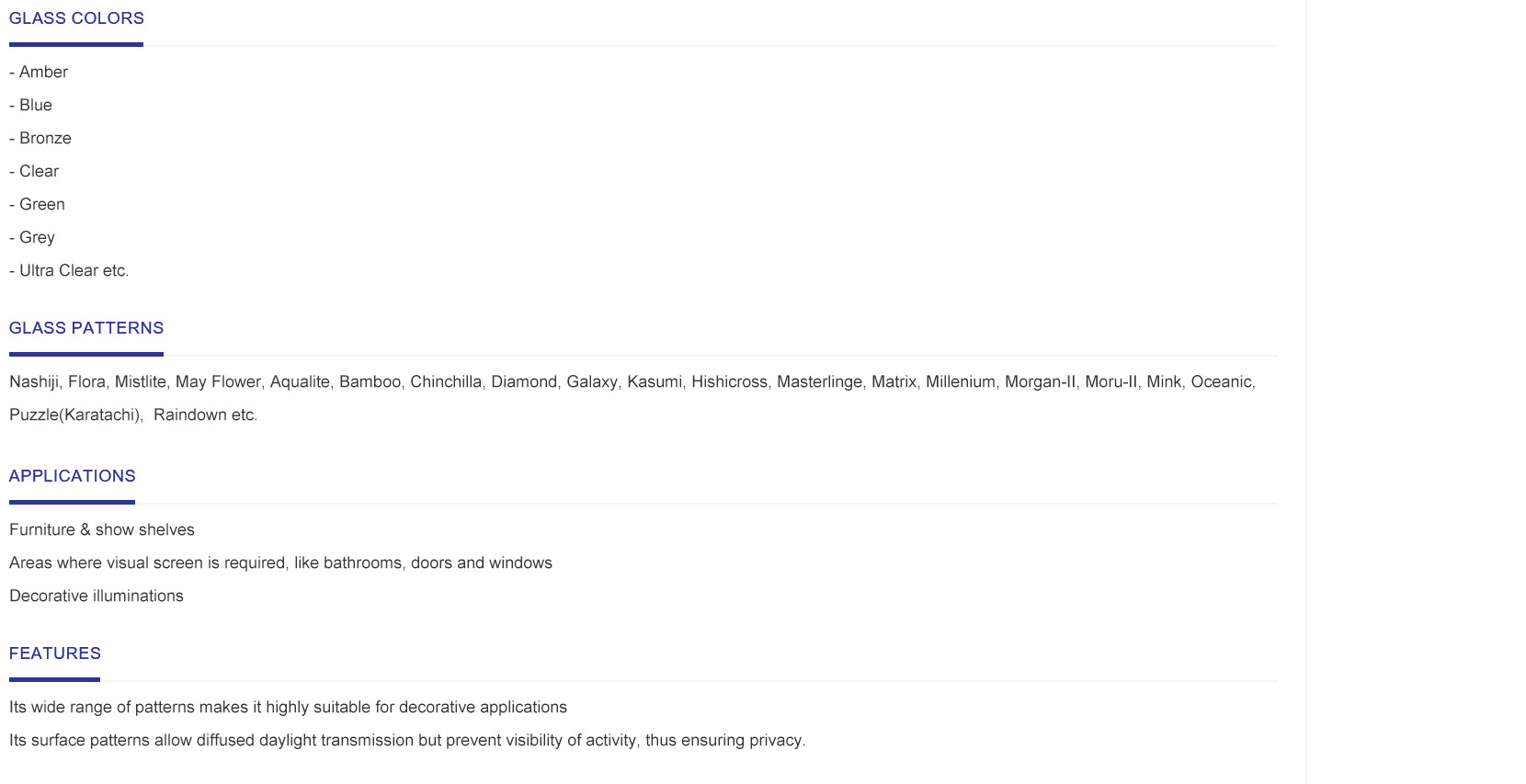

Understanding Tempered Glass A Guide for Wholesale Manufacturers
Tempered glass, also known as toughened glass, is a type of safety glass that has been treated by controlled thermal processes to increase its strength compared to normal glass. This process involves heating the glass to its softening point and then rapidly cooling it, which enhances its load-bearing capacity and ability to withstand thermal stress. As a result, tempered glass is widely used in various applications, including architecture, automotive, and household items. For wholesale manufacturers, understanding the nuances of tempered glass production and its market potential is crucial.
Market Demand for Tempered Glass
In recent years, the demand for tempered glass has surged due to its numerous advantages. Construction and architecture industries increasingly favor tempered glass for façades, balustrades, and various structural components, as it provides both aesthetic appeal and safety. The global trend towards using more glass in building designs—thanks to contemporary architectural aesthetics—has contributed significantly to the growing demand for high-quality tempered glass products.
Additionally, tempered glass is extensively used in the automotive industry. Vehicles today feature large glass surfaces for safety and design purposes, making tempered glass an essential component for side and rear windows. Manufacturers offering secure and reliable tempered glass products are positioned well to tap into this expanding market, with consumers increasingly prioritizing safety and durability.
The Manufacturing Process
The manufacturing of tempered glass is a meticulous process that involves several key steps. First, high-quality raw glass is selected, then cut to the required dimensions. After that, the glass pieces are heated in a specially designed furnace. The temperature in the furnace reaches around 620 degrees Celsius, softening the glass.
Once the glass reaches the desired temperature, it is rapidly cooled using jets of cold air. This rapid cooling process, known as quenching, creates compressive stresses on the surface of the glass and tensile stresses inside. This unique combination of stresses allows tempered glass to be much stronger than regular glass—up to five times stronger in some cases. The glass also has enhanced thermal resistance, making it less likely to shatter when exposed to rapid temperature changes.

Quality Control and Standards
For wholesale manufacturers, maintaining high standards of quality control during the production of tempered glass is paramount. Adhering to industry standards is not just about legal compliance; it is also about ensuring product reliability and safety. Various international standards govern the manufacturing processes and performance requirements of tempered glass, including ANSI Z97.1 in the United States and EN 12150 in Europe.
Regular testing—such as impact resistance tests, thermal stress tests, and optical quality assessments—ensures that the tempered glass produced meets or exceeds these standards. Manufacturers who consistently deliver high-quality products can enhance their reputation and foster long-term relationships with builders, architects, and designers.
Sustainability Considerations
Another significant factor for wholesale manufacturers of tempered glass is the increasing emphasis on sustainability. The glass manufacturing industry has made significant strides toward eco-friendliness by implementing recycling practices, reducing energy consumption, and minimizing waste. Utilizing raw materials from recycled glass can also reduce the carbon footprint of the manufacturing process. Educating consumers about the sustainable aspects of tempered glass can be an effective marketing tool, attracting eco-conscious clients.
Conclusion
As the demand for tempered glass continues to grow in various sectors, wholesale manufacturers must stay ahead of industry trends, maintain high-quality production standards, and adopt sustainable practices. By understanding the intricacies of tempered glass manufacturing and its applications, manufacturers can effectively position themselves in a competitive market, ensuring both profitability and reliability in their offerings. In this constantly evolving industry, manufacturers who embrace innovation and quality are bound to thrive.